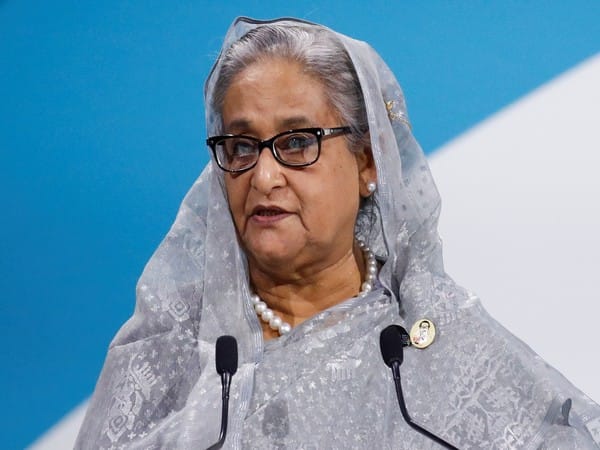Thank you dear subscribers, we are overwhelmed with your response.
Your Turn is a unique section from ThePrint featuring points of view from its subscribers. If you are a subscriber, have a point of view, please send it to us. If not, do subscribe here: https://theprint.in/subscribe/
The last forty-eight hours in Bangladesh have been tumultuous and terrifying. The fall of Sheikh Hasina is not the only bad news; it is the stunning collapse of the Awami League, the founding party of Bangladesh. The mobs are targeting party men, police, and intelligence officers and are looting everything they can lay their hands on. The Prime Minister’s residence and many other official residences have been breached and some torched. There are also reports of minorities being attacked. What these actions convey is much more than a student protest against a government they had enough of. While the immediate focus goes to the recent high court ruling on reservations in government jobs and the alleged power grabbing by Sheikh Hasina early this year in January when she jailed the main opposition leaders ahead of the election and won an election that was boycotted by all other parties, it is quite plausible that she was not updated on the extent to which the ground situation had deteriorated or was poorly informed that she could use brute force like before to kill this protest. This begs an important question about how a seasoned political leader and her party could lose connection with the happenings on the ground. Her partymen had long been accused of behaving like goons against their own people. But after an election with subdued participation, the party had to know that it was not a people’s mandate and that they needed to gain trust, especially among the youth who are now ravaging the streets. With the way things are unravelling in the streets and the decision of Sheikh Hasina to leave the country, there is now minimal chance for the Awami League to make a conciliatory effort with the public. The country now faces a situation where there is no one to lead or a political party to build consensus on the ground. As the military takes over, struggling to take control of the streets, it is not only Bangladesh but also its big brother, India, who is anxiously watching. Having backed Sheikh Hasina and her party and not investing enough in other student-led political groups, India not only failed to prevent the collapse but is now forced to sit on the fence, unable to be part of the consensus-building process. While it is for Bangladeshis to determine their country’s government and leadership, India’s role is definitely not restricted to watching from the sidelines. The political history of the subcontinent only points to one country, that is, India, and those who argue it is not for India to meddle with neighbours are unaware of the region’s political history.
India’s role and the future of Bangladesh
While it is true that Sheikh Hasina’s leadership provided two decades of stability and growth, the relations between the masses of the two countries have only degraded over the years. The domestic political rhetoric in India and the rise of fundamentalist Islamists in the region had become a headache for both governments that were able to manage it, with Sheikh Hasina’s government using brute force to target such groups. With India investing all its efforts in its bid to support Sheikh Hasina, her fall is a major blow. What will concern India more is the looming possibility of the Awami League getting wiped out of the politics of Bangladesh. India’s endorsement of Sheikh Hasina and her victory early this year was not taken well by the public, and it soon translated into an “India Out” campaign, which also echoed concerns about the Bangladesh government being a puppet of India. India’s forced efforts to legitimise their election by sending in our Election Commission were also a major step that went wrong, in hindsight. Now that Sheikh Hasina is taking asylum in India, at least temporarily, it reinforces the theory that India is siding with a dictator like Sheikh Hasina among the masses of Bangladesh. The subcontinent not having a formal political group expressing support also has not helped India, which has been the only one endorsing her leadership for a while now. This defines India’s measured silence on the current situation, even as they think of gathering international support for the situation in Bangladesh. It is also important to note that no major western power has outrightly blamed whatever is taking place and is more likely to describe the current situation as one of people’s movements against dictatorship in the respective country. This also translates into a few other points, the first of which is that no major western power is interested in endorsing the return of Sheikh Hasina or her party. The second point is that while they would support a reelection, they are unlikely to share India’s concern about a radical party grabbing power, which goes against India’s security interests. The third and last point is the obvious lack of political consensus between India, China and the Western powers on the future of Bangladesh. Sheikh Hasina has offered her resignation, but that won’t end the chaos on the streets. The visuals of Sheikh Mujibur Rahman’s statue being vandalised indicate a clear attempt to erase the political history of Bangladesh, of which India is also part. A huge 1971-like diplomatic campaign is required now for India to retain its influence in Bangladesh and help her rebuild.
These pieces are being published as they have been received – they have not been edited/fact-checked by ThePrint


